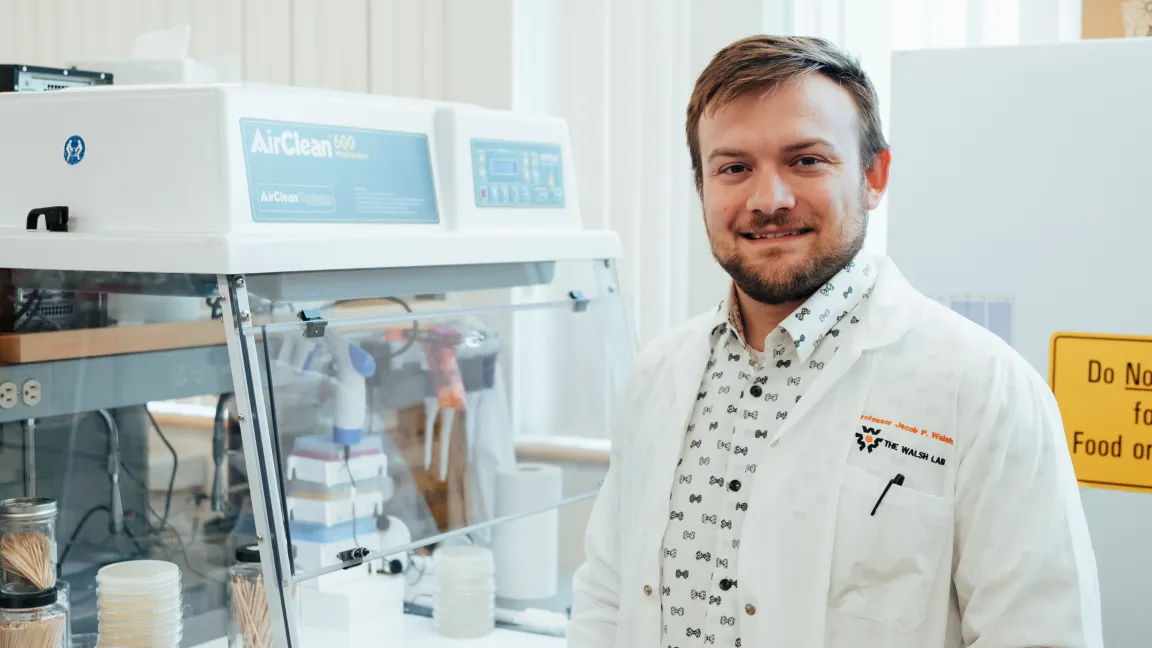Exploring microbial chemistry to tackle antibiotic resistance and crop disease
UNBC researcher Dr. Jacob Walsh is harnessing the chemistry of bacteria and fungi to uncover new tools for fighting disease.

Prince George, B.C.–As antibiotic resistance continues to rise, researchers like UNBC’s Dr. Jacob Walsh are exploring the microscopic world for answers. A new member of the Chemistry faculty, the Assistant Professor studies how microorganisms like bacteria and fungi produce small molecules, particularly siderophores, to survive, compete and sometimes cause infections.
“Siderophores are molecules that microbes use to scavenge iron, which is essential for life,” Walsh explains. “But they also show up when microbes are fighting each other or infecting a host, so we're trying to understand what roles they play and how we can interrupt those processes.”
His lab, which officially launched this year, is already growing. Four undergraduate students are involved this summer, with more expected in the fall. As his program expands, so does its scope—Walsh’s team is also examining agriculturally significant fungal diseases and contributing to the search for new antibiotics and drug targets, all with an eye toward improving health outcomes.
“Antimicrobial resistance is a major global threat,” he says. “By 2050, it's estimated to kill more people annually than cancer. But there’s hope—if we keep innovating. Microorganisms have been adapting to their environments for millions of years. There’s so much we can still learn from them.”
That research has particular significance for northern and remote communities, where timely access to effective medications can be more challenging. Walsh sees better drug discovery as one step toward improving health equity: “ New antibiotics and treatment options can help strengthen health-care capacity, especially in the North.”
Alongside his human health research, Walsh also studies environmental and agricultural impacts, including plant root rot and other crop-related fungal diseases. These projects support broader food security and environmental resilience efforts, particularly in northern British Columbia.
Looking ahead, Walsh hopes to establish a mass spectrometry facility at UNBC—an important step that would expand analytical capabilities for researchers across campus and help attract future faculty and students.
“It’s an exciting time to be doing research at UNBC,” he says. “We’re growing capacity and building momentum, and there’s so much potential to make an impact right here in the North.”